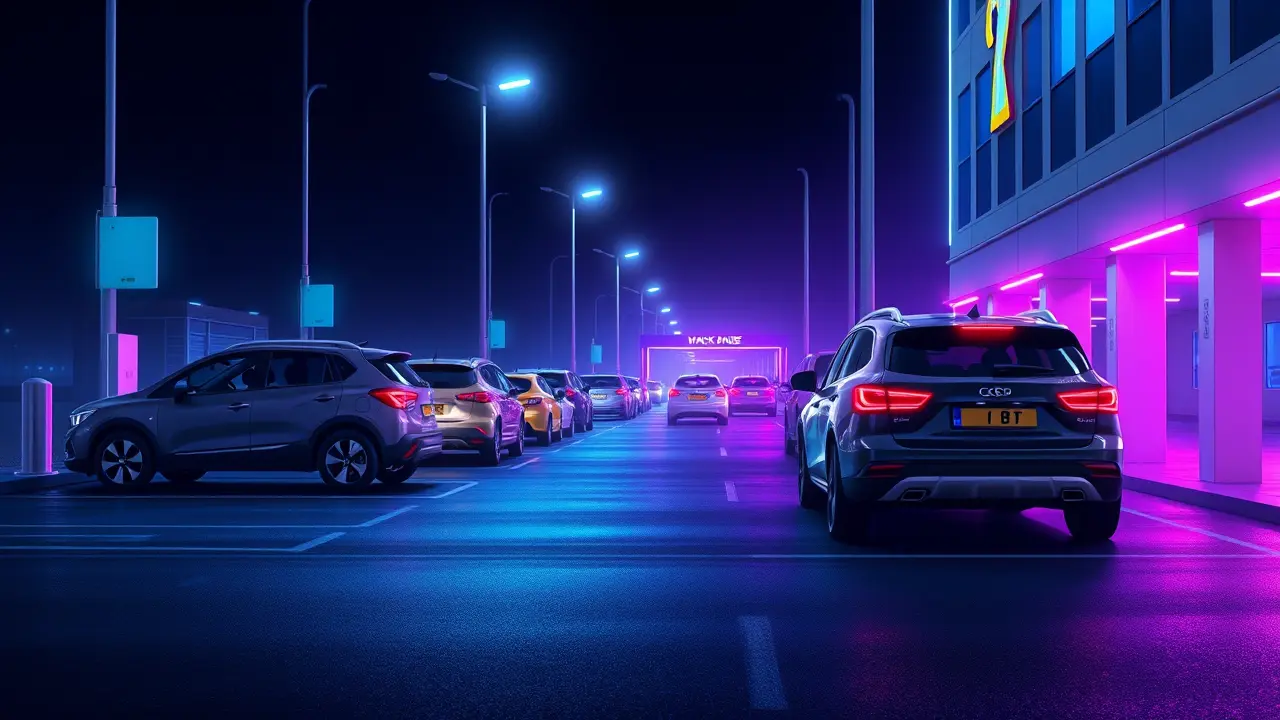- News
- transport-aviation
- Cardiff becomes first UK council to impose higher parking charges on larger vehicles
Cardiff becomes first UK council to impose higher parking charges on larger vehicles
In a landmark decision that positions urban environmental policy at a critical crossroads, Cardiff Council has boldly become the first local authority in the United Kingdom to implement a parking surcharge specifically targeting larger vehicles, a move that directly confronts the escalating proliferation of SUVs and other bulky automobiles which have long been criticized as a palpable danger to other road users and a significant contributor to urban blight. The council's vote on Thursday to approve this new parking plan is not merely a bureaucratic adjustment of fee structures; it is a profound statement on the sustainability of our cities, a deliberate intervention in the complex relationship between consumer choice, public safety, and ecological responsibility.This policy, which mandates higher charges for parking permits based on a vehicle's physical footprint, is rooted in a simple, undeniable truth: these larger machines consume a disproportionate share of finite public space, creating a cascade of negative externalities from reduced visibility for pedestrians and cyclists to increased particulate matter from tire wear, a often-overlooked pollutant. The steep rise in SUV ownership across the UK mirrors a global trend, one that has pushed transport emissions ever upward even as other sectors strive for decarbonization, turning our city streets into corridors dominated by vehicles fundamentally ill-suited to their narrow, historic layouts.From an ecological perspective, this is a watershed moment, reminiscent of earlier public health interventions like the London congestion charge but tailored for a new era of vehicular bulk. The decision did not emerge from a vacuum; it follows years of mounting pressure from cycling advocacy groups, urban planners, and public health experts who have consistently presented data linking larger vehicles to higher risks for vulnerable road users and a greater strain on infrastructure not designed for their weight and size.One can draw a parallel to the gradual, then sudden, societal shifts on issues like plastic bags or smoking bans—a growing body of evidence and public awareness eventually catalyzing political action. The council's rationale, that these vehicles 'take up more parking space and are a danger to other road users,' is a distillation of a much broader and more urgent conversation about the kind of urban environments we wish to inhabit.Will our city centres be designed for people, for community, for clean air and safe passage, or will they continue to cede ground to the private motorcar in its most inefficient and imposing form? Critics will inevitably decry this as a 'war on motorists' or an unfair penalty, but such framing ignores the fundamental principle of proportionality—that those who choose to operate a private asset with a larger physical and environmental impact should bear a commensurate share of the cost for the public space it occupies. This is not punitive; it is corrective, an attempt to rebalance the scales in a system that has for too long subsidized inefficiency and hazard.The potential consequences are multifaceted: it could spur a measurable shift in consumer purchasing behavior at a local level, nudge the automotive market towards more compact, efficient designs for urban use, and generate revenue that Cardiff can reinvest into its public transport and active travel networks, creating a virtuous cycle of improvement. If successful, this policy could serve as a blueprint for other cities across the UK and beyond, from Edinburgh to Bristol, who are grappling with identical challenges of congestion, safety, and emissions.The eyes of municipal governments nationwide will be fixed on Cardiff, monitoring not only the public reception and legal challenges but, crucially, the hard data on traffic composition, accident rates, and air quality in the months and years to come. This is a live experiment in urban policy, a test case for whether fiscal levers can effectively shape the material reality of our streetscapes. In the grand narrative of humanity's struggle to coexist with its own technology, the humble parking space has become an unlikely battleground, and Cardiff has just fired a decisive shot for a more sustainable and equitable future.
It’s quiet here...Start the conversation by leaving the first comment.
